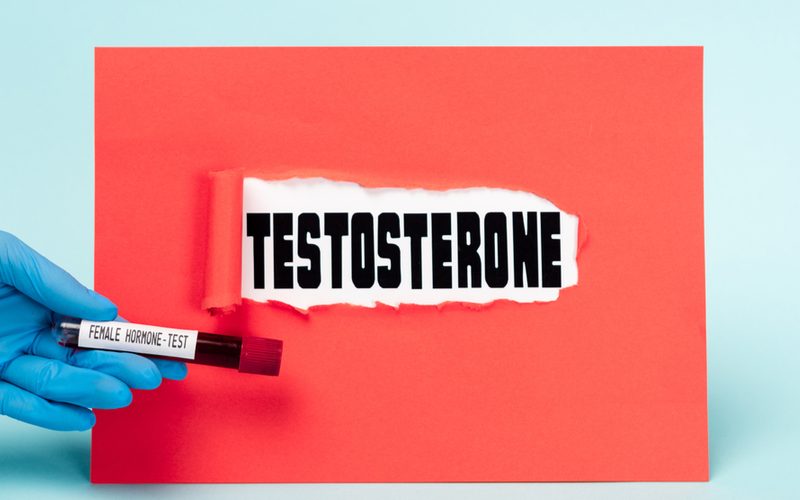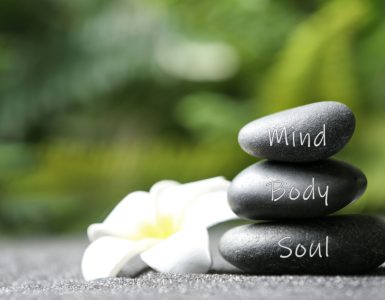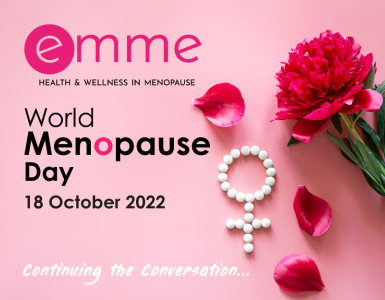The shortage of oestrogen gel for HRT is hitting the headlines daily at the moment, a shocking state of affairs highlighted even further by the recent Davina McCall TV programme – Sex, Mind and the Menopause. But equally as scandalous is the fact that testosterone is an important hormone that’s overlooked when it comes to prescribing HRT.
As Kate Muir, producer of Davina McCall: Sex, Mind and the Menopause, says, women struggling to get hold of their HRT aren’t just missing two hormones – they’re missing three
During the menopause, oestrogen and progesterone decline suddenly, but testosterone, typically thought of as a male hormone, drops off slowly. And it’s this that’s linked to major symptoms of the menopause – brain fog, memory problems and a low libido. Yet testosterone is rarely discussed with women seeking help the menopause.
Female bodies need 10% of the level of testosterone in a male body – but testosterone levels are three times as high as oestrogen in females, so it’s an important hormone. Doctors aren’t taught of the importance of testosterone in medical school but it’s required for energy, mood, cognitive function and libido, as well as for muscle and bone maintenance.
Kate Muir has told the Daily Mail, “I’ve been using testosterone cream for six years as part of my HRT”.
“The main difference it makes for me is in memory — before I began taking it I sometimes panicked and struggled to find the words for things. Now I can give a speech for an hour without notes.”
“At work, I felt like a clapped-out banger before I started testosterone. Now I know I’ll cruise smoothly through the day, like a Tesla.”
“It’s not just my experience — as part of a documentary I produced, Davina McCall: Sex, Mind and the Menopause, which was screened last night, we monitored a group of working women in their 50s who started taking testosterone on top of their regular HRT over three months. The results were astonishing.”
“One woman said, “I seem to have a sharpness back, a real focus and clarity about what I’m trying to say” Before the experiment she’d been exhausted. “It’s tiring feeling so tired all the time.”
This sentiment was echoed by many of the women in the experiment, with one even saying that Brad Pitt “wouldn’t have done it for her” her libido was so low.
So misunderstood is testosterone, that many doctors never discuss it with their patients, and those women who do know about it, fear excessive hair growth
In fact, a female testosterone patch was developed years ago, but has since been discontinued due to low uptake. Little wonder, given that GPs don’t talk about it. When they do, the only choice women in the UK have is to buy a female specific patch privately or to use a male specific testosterone gel and to work out the dose they need themselves.
But as GP, Dr Zoe Hodson explains, “Women’s fears that testosterone supplements would make them hairy were largely unfounded. Menopause experts give women only a tiny bit of testosterone, and roughly the same amount as the average woman would have in her early 40s (women need a tenth of the amount men make).”
“Occasionally women don’t tolerate it well, and one report has suggested that some can experience mild acne and hair growth — particularly if they use too much.”
“But after six years, I haven’t grown a moustache. As long as it stays within the normal female physiological range, we can discount the beards, we can discount the testicles!”
Kate says, “What was surprising is that testosterone in both women and men is commonly viewed as a sex hormone, ramping up desire. But the tests with the women for our documentary — and what they emphasised themselves — showed that the hormone had brought back their mental agility as well as their ability to feel pleasure.”
Following on from the testosterone experiment highlighted in the programme, larger scale trials are due to begin starting with a project at Manchester Metropolitan University.
It can’t come soon enough, because to echo Davina McCall in her programme, “When will they give us our hormone back?”.
Do you use testosterone? How has it impacted your life? We would love to hear from you at [email protected] or get in touch on Instagram @emmemenopause















